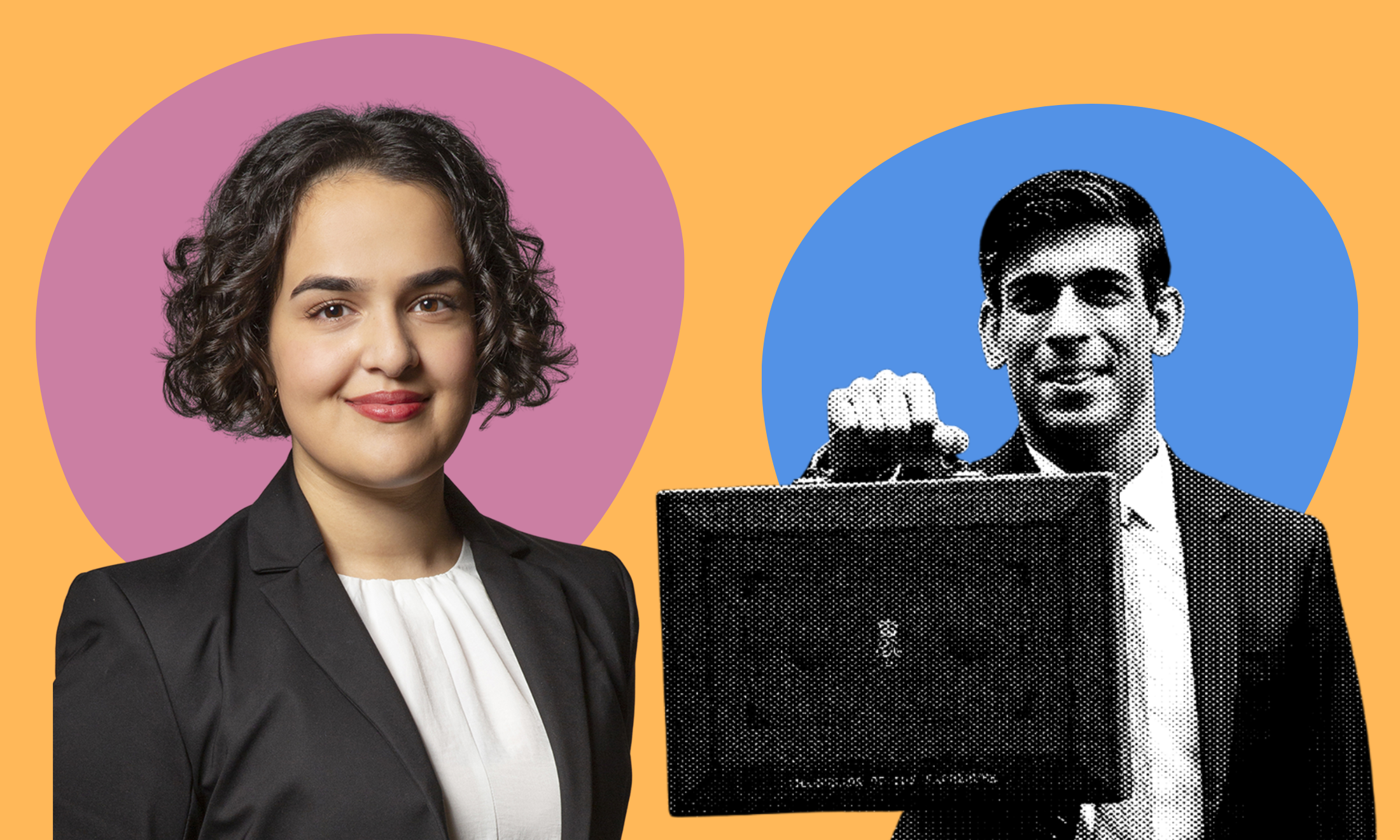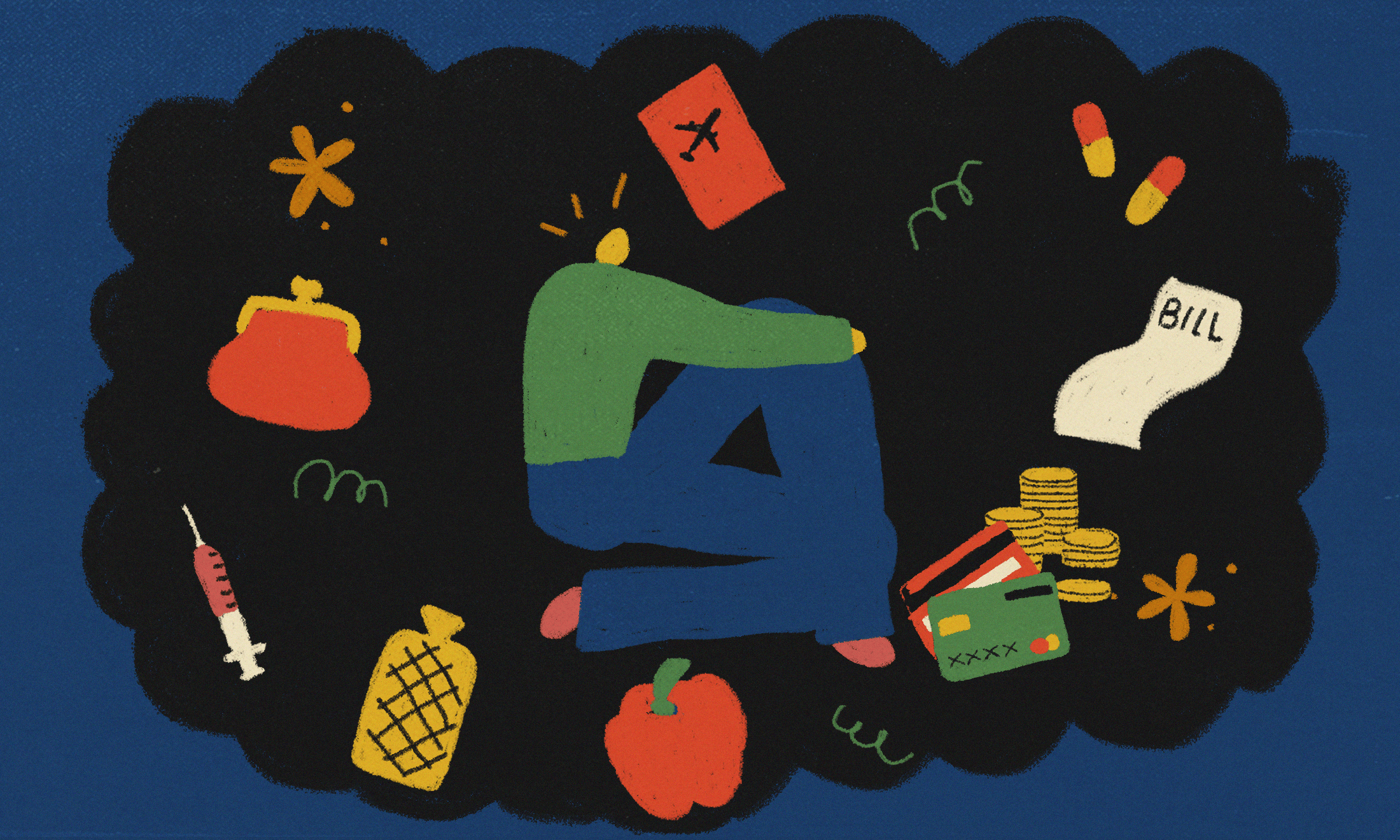Nadia Whittome: ‘Rishi Sunak’s Spring Statement will go down in history as a missed opportunity’
We must never forget how the Chancellor chose the rich over addressing the cost of living crisis, says the Labour MP.
Nadia Whittome
24 Mar 2022

Flickr/Wikimedia
Britain is heading for its biggest fall in living standards since the 1950s. This isn’t speculation or hyperbole, it’s the assessment of the Office for Budget Responsibility – an official government body.
It’s hard to overstate just how bad things are about to get for millions of people. 1.3 million will be pushed into absolute poverty, making it impossible for them to attain even the basic essentials. People will lose their homes. Children will go to bed hungry. Pensioners risk freezing to death.
Even if you’re not on the breadline, you’re about to see your ‘disposable income’ disappear. As people tighten their belts, this could spell disaster for the economy. Businesses will shut, jobs will be lost, we’ll be sent further into a vicious cycle. Most of us will have never seen anything like this in our lifetimes.
Yesterday was the government’s opportunity to stop this: the chancellor’s Spring Statement, setting out his financial plan for the year, as millions stand on the precipice of poverty and financial ruin. Many assumed that given just how severe the situation is, surely even a Tory chancellor would announce some serious interventions to cushion the blow?
They were sorely disappointed. Instead of policies to shield those on low incomes, to redistribute obscene profits, and to prevent a £1,300 increase in yearly energy bills, a millionaire chancellor – the richest man in Parliament – gave a Statement for the rich, driven by his ideological obsession with a small state and tax cuts for higher earners.
To tackle the cost of living crisis, the chancellor said that he will double the Household Support Fund to £1bn, cut fuel duty – the tax on petrol and diesel – by 5p, lower income tax from 20% to 19%, and raise the National Insurance Contributions threshold.
But these measures amount to little for those struggling most. £1bn to help the poorest with the cost of living will not go very far at all, and as it’s dished out by local councils, support will vary depending on where you live.
Research by the New Economics Foundation predicts that one-third of the savings from the fuel duty cut will go to the richest 20% of households, while only 7% will be felt by the poorest. It will save just £3 on the cost of filling up an average family car.
The National Insurance threshold rise means that instead of anybody earning more than £9,568 per year having to pay National Insurance Contributions, only those earning over £12,570 will have to.
“If these are the only tools deployed to tackle the cost of living crisis, it will spell disaster for the most vulnerable households”
While this will benefit a small section of lower-earners, it will do nothing for the poorest 10% who were already exempt. Only £1 in £3 of the benefit will go to the bottom half of the income scale, with middle- and higher-earners benefitting the most.
The Chancellor’s income tax cut will also not come into force immediately but instead only in two years time. This policy is not designed to help people now. Instead it is choreographed to benefit the Tories at the next election: if, as expected, an election takes place in 2024, they can kick off campaigning by pointing towards their tax cuts.
In the background to all this, welfare benefits are falling in real terms. The 3.1% rise agreed earlier this year will be far outstripped by inflation, which is predicted to reach almost 9%. Meanwhile, other taxes are rising. The tax cuts announced yesterday offset just a sixth of the tax hikes introduced since Sunak became the Chancellor.
As Torsten Bell from the Resolution Foundation has pointed out, if these are the only tools deployed to tackle the cost of living crisis, it will spell disaster for the most vulnerable households.
But the Chancellor could have done so much more, if he’d chosen to. He should have cancelled the National Insurance increase, implemented a wealth tax to raise funds to support the most vulnerable, and increased the minimum wage and welfare benefits.
He could have also tackled rising energy bills. Last year BP made £9.5bn in profit. Shell made £14.3 billion. A windfall tax on obscene profits from North Sea oil and gas production could have helped households pay their bills immediately. Instead, he’s put their shareholders before the people he is meant to represent.
Another alternative is keeping the price cap. In France, thanks to government intervention, households will see an increase in their bills of only 4%. Those energy companies that fail should be brought back into public ownership, as should the entire energy system in the long term.
This moment also shows the need for a Green New Deal. It is the only policy that could help to tackle both the climate crisis and the energy crisis while also addressing inequality. For example, British homes are the biggest energy-wasters in Europe, disproportionately affecting those on low incomes. A Green New Deal would carry out a massive retrofitting programme, reducing energy bills and creating jobs. It would also end our dependence on dirty fuels – a key cause of rising bills – and build an economy based on 100% clean energy.
Instead, this Spring Statement will go down in history as a missed opportunity. As the eye-watering bills land on the doormat, as it gets harder to make the money last to the end of the month, as the food bank queues grow, we must never forget: this was avoidable. The Conservatives chose ideology and the rich over us.

Britain’s policing was built on racism. Abolition is unavoidable

How Pakistan’s Khwaja Sira and transgender communities are fearing and fighting for their futures

Their anti-rape performance went viral globally. Now what?





